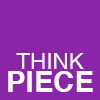 By DIANE KALEN-SUKRA
By DIANE KALEN-SUKRA
March 21st, 2021
BURLINGTON, ON
A concurrent path towards systemically addressing toxicity in the public square and fostering a culture of civility, respect, mutual care and wellbeing includes efforts to enhance the skills of both citizens and civic leaders in civil discourse, critical thinking, social emotional regulation, secular ethics and the centrality and importance of human well-being and compassion in a healthy society.
Toxicity in the public square causes harm to individuals and organizations, results in a loss of diversity, lost productivity, costly lawsuits, and tears at the social fabric of communities. Ultimately, it undermines our democracy and the ability for governments to work collaboratively and effectively with the public to solve the many complex problems communities face. COVID has only exacerbated these challenges, threatening local economies, main streets, and downtowns as well as the further deepening of systemic urban inequalities and local government funding shortfalls.
In short, we need each other. A notable global effort to improve the quality of civic participation and social trust is called Citizen Discourse, which promotes the practice of healthy civil discourse skills. Individuals and organizations are encouraged to voluntarily sign a Compassion Contract – a type of social contract committing them to a set of shared values that inform a community’s norms for engagement.
They are centred on a few principles—namely, be respectful; listen to understand; act with good intentions; support ideas with evidence and experience; disagree without being disagreeable; critique the idea, not the person; invite wonder.
Simon Fraser University’s Morris J. Wosk Centre for Dialogue recently published the results of a two-year survey in which they found that 60 percent of Canadians want improved civic education and 44 percent would like more avenues for democratic participation.
Then there are the 450 cities that have adopted and signed the Charter for Compassion – a public commitment to foster safe, inclusive, and resilient communities for all that are rooted in ethical conduct and compassionate integrity.
One such Charter Compassionate City, the District of Sooke, British Columbia was already well-positioned to adapt to pandemic-exacerbated social and economic challenges. In 2019, Council adopted the Sooke Compassionate Action Plan that committed the District to partner with the community to address homelessness, the affordability crisis, social isolation, inadequate health services, and enhance public communication and collaboration. In July of this year, new homeless shelter space was quickly secured as multiple agencies rapidly banded together in the district to meet evolving community needs.
Sooke Mayor Maja Tait says part of embracing ‘the new normal’ during the pandemic is thinking outside the box, forging new relationships with community partners, and finding solutions that work for everyone. “I am grateful, but not surprised, that community partners came together under tight timelines, and found a better way to help our most vulnerable residents.”
“Our lives have been disrupted [by COVID] at local and global levels. Inequities have surfaced into full view. While our situation could be frustrating, frightening and even depressing, signs of potential for positive change and community growth have also emerged. We are all being urged to display creativity, compassion in these trying times. To become anything of true worth requires commitment and learning.
Where do we begin? I began with myself and my office. We were some of the first to take Compassionate Integrity Training. Even though compassion may sound like a soft skill set, it has very hard outcomes. Research shows that businesses that practice compassion increase their bottom line, that compassion decreases bullying in schools and increases the body’s immune system and other healing properties. We need compassion now more than ever.”
As this column goes to press, the first such training tailored uniquely for civic leaders, called Resilient Civic Leadership: Compassionate Integrity Training for Civic Leaders will be graduating its first cohort representing elected officials, Chief Administrative Officers, and other senior civic leaders from 16 different municipalities across Canada. Graduates receive a university certificate from the Centre for Compassion Integrity and Secular Ethics, Life University.
COVID has laid bare our interconnectedness as people, communities, and nations. As we work together to protect and heal ourselves physically from the ravages of COVID, we can also heal the fabric and soul of our communities, democracy, and planet. For better or for worse, we really are in this together.
 DIANE KALEN-SUKRA, MA, CMC is PSD’s Civic Resilience columnist. She is an author, speaker, educator, coach and certified culture change consultant with the Barrett Values Centre. Diane’s firm Kalen Consulting inspires and equips leaders to build resilient communities through good governance, asset management, servant leadership, compassionate culture, and civic education.
DIANE KALEN-SUKRA, MA, CMC is PSD’s Civic Resilience columnist. She is an author, speaker, educator, coach and certified culture change consultant with the Barrett Values Centre. Diane’s firm Kalen Consulting inspires and equips leaders to build resilient communities through good governance, asset management, servant leadership, compassionate culture, and civic education.




















Wouldn’t it all be much simpler if we all just followed the, golden rule?
Absolutely agree Steve on your academic jargon point….. However, we think there is room for a project like this that could begin with a pledge card being signed by members of Council that says “when our Procedure By-laws or governing legislation says we can`t do it, and members of the public show us we cannot do it, we will withdraw approval of decisions we have made that are without statutory authority“. This would make a pleasant change from the city, and its council, using an army of internal and external lawyers to support what they know they have no legal right to do.
Examples of such behaviour and why our government must support an end to this behaviour; (connected to three open files and 79 Burlington appeals at LPAT and $5 million of extra taxes taken from struggling downtown businesses), will be in Minister Clark`s hands by middle of April, if not before,
We are told we have a council that has at least two members who hold qualifications that see Burlington academically set apart from the rest of Ontario`s municipalities if not Canada. However, when these two “academics“ are part of a council that unanimously make decisions that show they either do not understand or thumb their noses at the meaning of `without statutory authority“ as they repeatedly do, we have a serious problem that must be fixed before the next election.
I believe that the degree to which we, as ethically grounded individuals but with a concurrent and somewhat asymmetric tension for aberrant behaviour, have been conflicted in both our natural and acquired selves by the lack of social interaction due to the pandemic, is the nexus of both the existential angst and the sustaining joy of our contemporary environment. I believe that Diane captures this beautifully.
I would like to read this post with the academic jargon replaced by plain english. There is a lot of feel good in here but what does any of it actually mean? I think I recognize a few woke code words for sure. A good start toward understanding would be for Diane to give her top ten specific examples of “toxicity in the public square”
I thought I was the only one who was mystified by her use of jargon and profound sounding words. My Grade 13 English teacher who gave me a failing mark on my first essay in her course explained to me, “you spent all your time researching and thinking but far too little time writing. ALL THE GREAT IDEAS IN THE WORLD AREN’T WORTH ANYTHING UNLESS YOU CAN CLEARLY COMMUNICATE THEM TO YOUR AUDIENCE SO THAT THEY ARE UNDERSTOOD”.
Shouting doesn’t help to get your message across. They might be ignorant but they are not deaf.